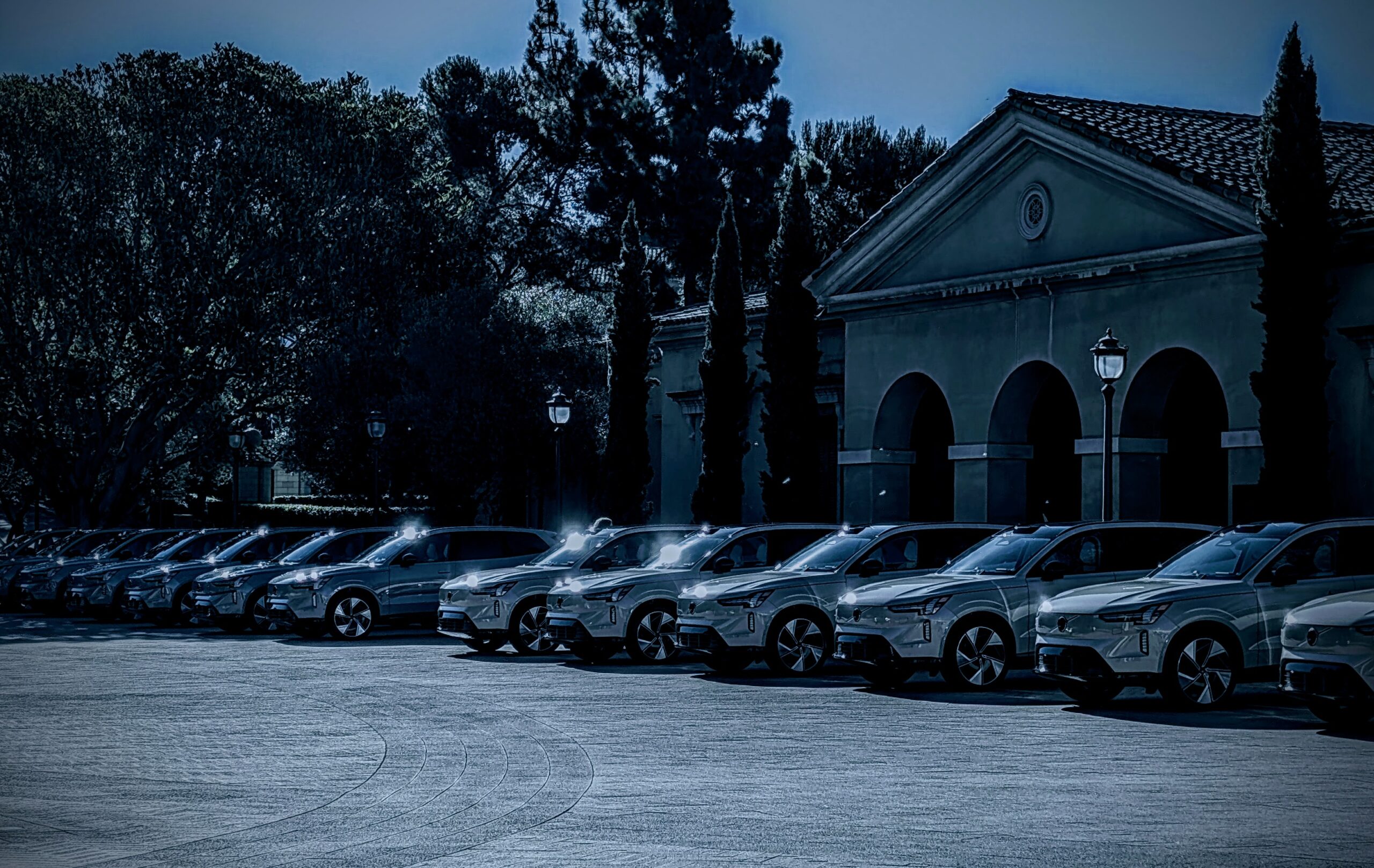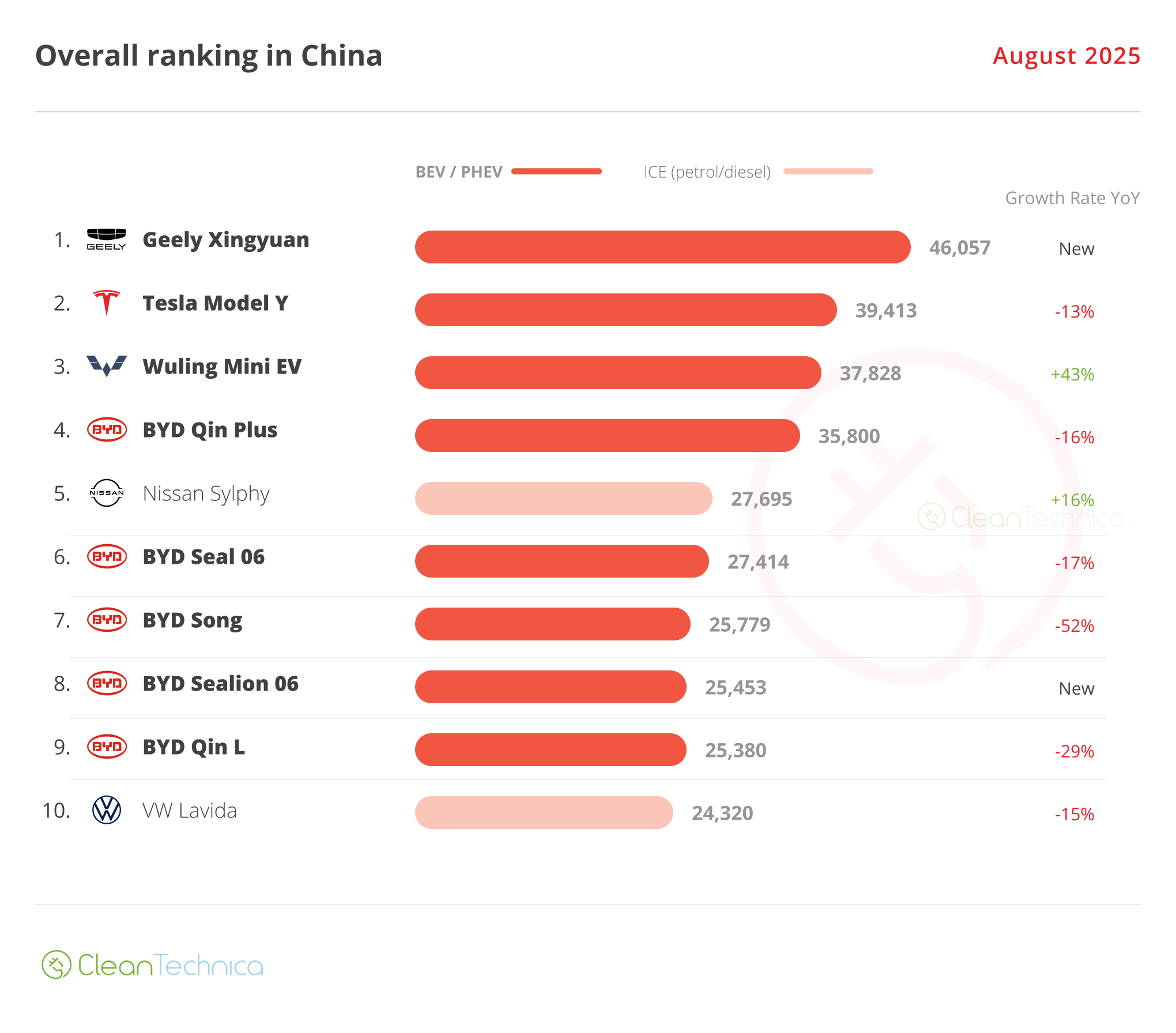Support CleanTechnica’s work through a Substack subscription or on Stripe.
Saturday, October 18th, 2025 was a big day across the US. People across all demographics gathered to protest President Donald Trump and his administration. Organizers of the No Kings Day rallies have reported that more than 7 million people attended protests across 2,700 cities — and more people joined abroad. Activists and everyday citizens came out in what may have been the largest US protest — bigger than 1960s and 1970s civil rights and Vietnam War assemblies — in concern over Trump’s anti-democratic policies.
These are people who have been raised to believe that the political system and its checks and balances protect the American people. Those beliefs seem shattered, as the US federal institutional system has failed. The No Kings Day gatherings are a clear message that coalitions of people with disparate concerns about our fragile US democracy can coalesce and demand change.
The MAGA-is-All tenor of the current administration presents a direct threat to our US way of life and the quality of the life we lead. We’ve had a lot of bad news since the Trump inauguration. Nobel Prize-winning economist Paul Krugman allows that Donald Trump “has not yet consolidated anything like absolute political power. But parts of our society — the Republican Party and a number of supposedly independent institutions like, say, CBS — are in effect living inside a bubble in which they operate as if he has.”
For those of us who understand the gift of clean energy, we’re devastated by the revocation of our Paris Agreement pledges. Trump has issued a series of sweeping executive orders including “terminating the Green New Deal” via funding in the Inflation Reduction Act — former President Joe Biden’s signature piece of climate legislation. Bipartisan Infrastructure Law funds have also been frozen. The Trump administration has increased oil and gas production, weakened the Endangered Species Act, opened up areas in the pristine Arctic National Wildlife Refuge for drilling, eliminated electric vehicle incentives, and eviscerated environmental justice from new building considerations, among others.
Climate activists are horrified yet resilient. Being a climate activist is a noble calling. It’s a way of putting pressure on national and business leaders to accept responsibility to safeguard a livable future. Solving the climate crisis requires making rapid social and technological change for which there is no documented historic precedent.
When we come together as collectives and communities, we put pressure on policy makers, and we model alternative pathways toward holding fossil fuel companies accountable for the substantial part they play in climate pollution. It’s a type of glue that binds us — both metaphorically and, in several cases, literally.
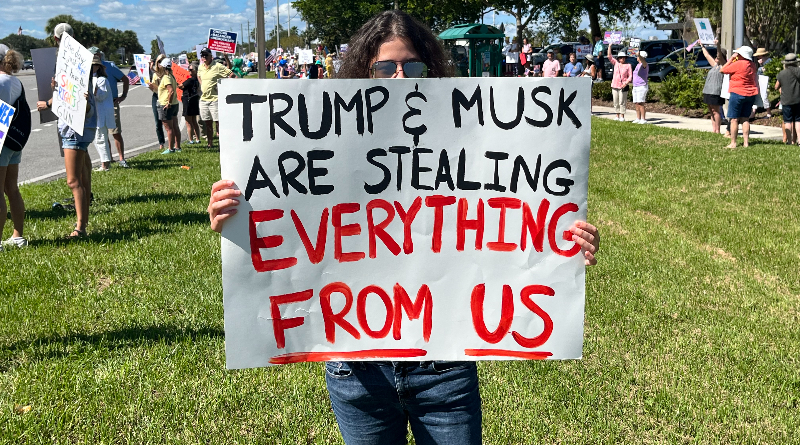
By amplifying fears of moral alienation and cultural displacement, Trump’s calculated strategy to consolidate power has been grounded in mobilizing resentment to erode the very norms that sustain democratic institutions. Protesters expressed indignation over immigration raids, the deployment of federal troops in cities, government layoffs, steep budget cuts, the chipping away of voting rights, the rollback of vaccine requirements, the reversal on treaties with tribes, and the One Big Ugly Bill.
Renewable energy companies had to kowtow to King Trump and his former lackey Elon Musk in order to keep their renewable energy projects viable. By redefining democratic politics around exclusionary lines, Trump has drawn upon anxiety rooted in fears of economic insecurity and immigration to mobilize support. Economic discontent was reframed as a cultural battle.
Musk, too, has long identified declining economic security of the white working class, recasting automaking as technological innovation. It has proven to be a critical mechanism to retain his non-unionized workforce. Though Musk’s DOGE failed to achieve a notable record on rooting out “waste and fraud,” he did generate an estimated $21.7 billion in waste, according to a Minority staff report from the US Senate Permanent Subcommittee on Investigations (PSI) titled, “The $21.7 Billion Blunder: Analyzing the Waste Generated by DOGE.”
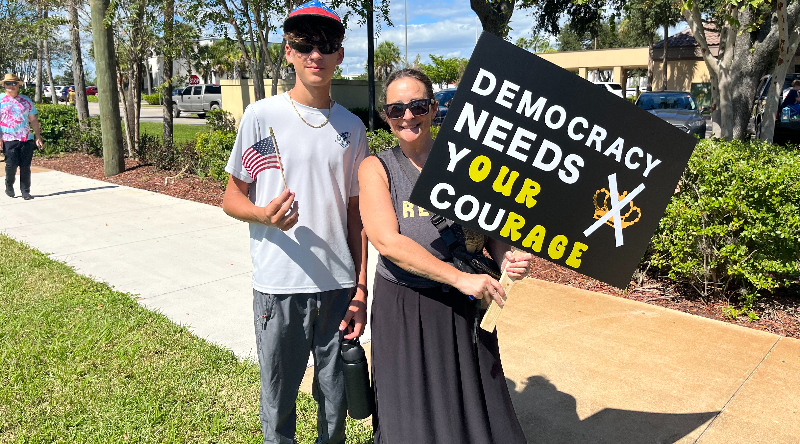
Historian Heather Cox Richardson wrote today, “The idea that leaders must attract voters with reasoned arguments to win power and must concede power when their opponents win has been the central premise of American government since 1800.” Yet across the country the Trump administration continues its escalation of immigration enforcement tactics. It has threatened political opponents with indictments and intimidation. It has sent military troops into Democrat-run cities.
The No Kings Day rally brought together multi-generational groups who bonded in shared commitment to the precepts of democracy: equality, rule of law, limits to government power and representative democracy.
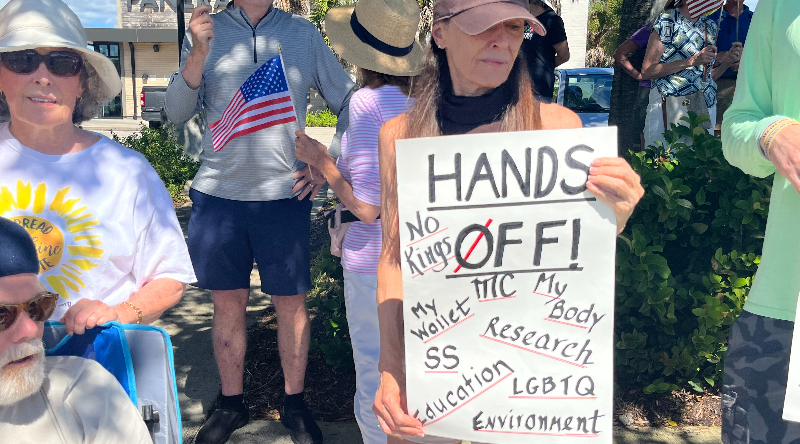
In 2015, when the world leaders collectively adopted the Paris Climate Accord, it seemed the world was together in fighting the inevitable enemy facing our next generation: climate catastrophe. That positive step has been weakened across the globe by right-wing governments that prize profits over human health, political weight over peer-reviewed research, billionaire payoffs over working people’s financial security.
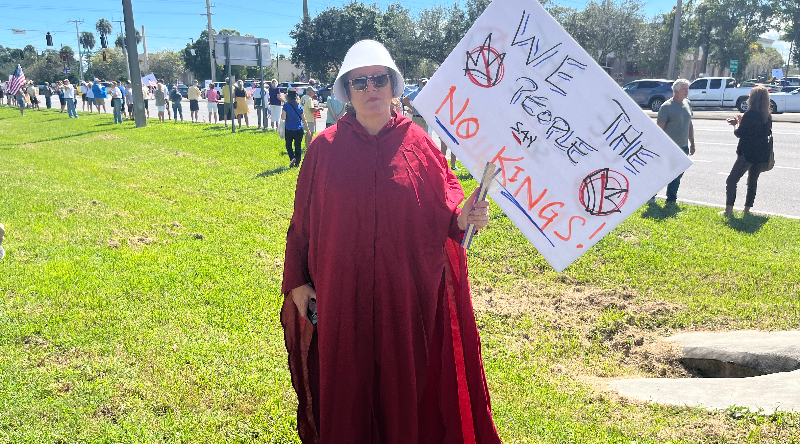
Cox Richardson says that what we have in the power of governing the US is “an administration apparently bent on replacing that democracy with a dictatorship.”
Although the Trump administration warned MAGA adherents that the protests would be violent and that the protesters were “terrorists,” city police departments from New York City to San Diego reported no protest-related arrests. “Boston doesn’t back down,” Mayor Michelle Wu told the Boston, Massachusetts, crowd. Trump, she said, is “counting on us going quiet,” but Boston will “stand with LA and Portland,” where Trump has tried to send in the National Guard.
In Vero Beach, Florida, though, I did see an adult male with an oversized Trump/MAGA flag on an electric scooter zipping through the No Kings Day protesters. He stopped every so often and yelled statements like “you have white privilege” and “you should be ashamed of yourselves.” After a few repetitions through the crowd, I noticed two young males with very expensive camera equipment who were following him on their own scooters. I realized that they were paid MAGA shills: their role was to film No Kings Day protesters behaving aggressively.
I heard later that a MAGA loyalist thrust a flag in a female senior citizen’s face. To protect herself, she pushed him away. The MAGA loyalist called the police, and three SWAT team SUVs responded.
If true, it was a set-up, a travesty, a sad example of our post-truth society in which persons engaging in self-defense become conservative media clickbait.
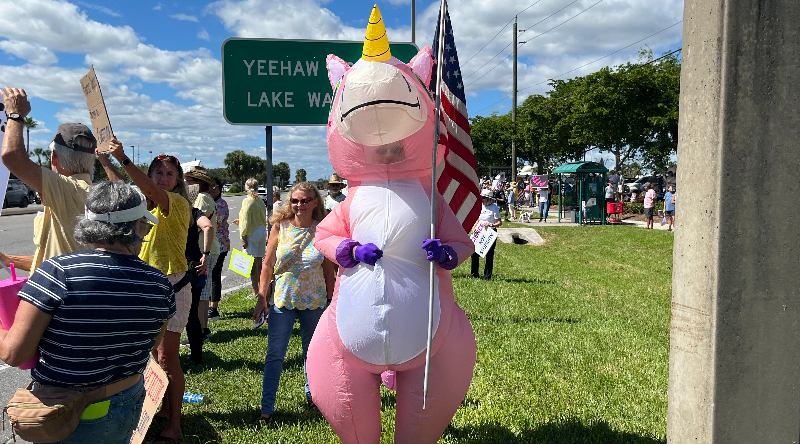

Protesters poke fun at the White House’s attempt to portray activists as anarchists or domestic terrorists. Lisa Corrigan, who studies social movements, explains that gatherings like the No King Day assemblies that include art and music bring the collective energy to new levels and work in a gestalt to infuse confidence in people to take more risks and speak out against growing state power.
Corrigan writes, “The frogs (and unicorns and dinosaurs) will be defining ideographs of this period of struggle.” What seems initially like silliness is, actually, part of a shared visual history that allows people to connect identities and forge new relationships.

The Boston Globe reported that the Boston No Kings Day Protests had the atmosphere of a festival with music, costumes, hawkers, and pun-heavy signs, drawing inspiration more from the protest movements of last century than the past decade. Robert Reich commented that he knows what “it looks like when a grassroots movement reaches a tipping point and an autocrat starts to lose grip on power. This is it.”
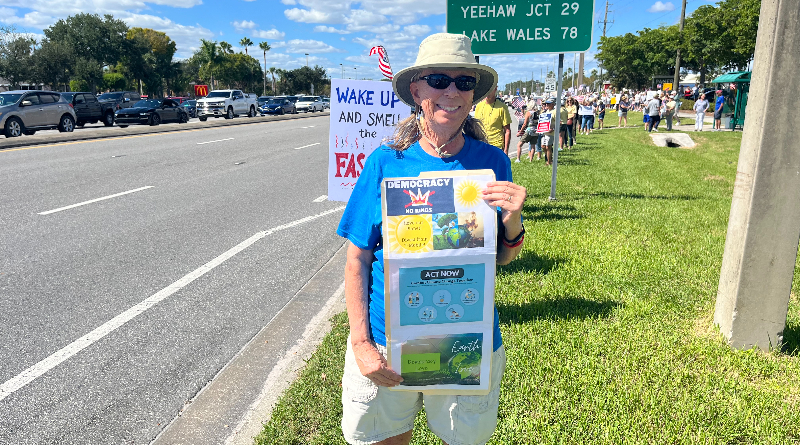
Climate activism like my own protest above shifts public opinion and media coverage in a pro-climate direction. Such climate action can lead to massive increases in whether people have heard at all about the climate organization conducting the protests, the need for climate funding, and the ways that climate change affects local communities.
The No Kings Day protests signified how passionately people in the US care about democracy. A return to healthy democracy can mean a throw-down to billionaire influence. It can mean giving renewable energy its rightful place in the US energy mix. It can mean addressing pollution that poisons our bodies.
Sign up for CleanTechnica’s Weekly Substack for Zach and Scott’s in-depth analyses and high level summaries, sign up for our daily newsletter, and follow us on Google News!
Have a tip for CleanTechnica? Want to advertise? Want to suggest a guest for our CleanTech Talk podcast? Contact us here.
Sign up for our daily newsletter for 15 new cleantech stories a day. Or sign up for our weekly one on top stories of the week if daily is too frequent.
CleanTechnica uses affiliate links. See our policy here.
CleanTechnica’s Comment Policy


